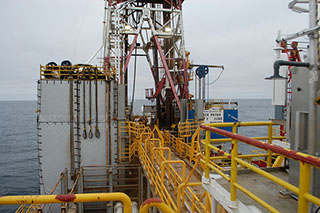Former BP chief executive Lord Browne cautioned Shell about the risks of drilling in the Arctic in a recent interview with BBC News.
Browne was at the helm of BP in 2006 when a company pipeline spilled more than 200,000 gallons of oil into Alaska's Prudhoe Bay. BP paid more than $20 million in fines as a result of the incident and spent hundreds of millions to upgrade pipeline integrity following the spill.
“I’m not chairman of Shell,” Browne said in an interview for a radio documentary on climate change. “But I think [Arctic drilling] is very expensive and I would always go for hydrocarbons which have less cost and effort involved. Some companies will genuinely believe - they may be right - that they can produce oil safely and environmentally securely in extraordinary conditions.
“[But] I’ve never been a great supporter of right-on-the-margin development, partly because of the cost. So I think you’ve got to be careful what you do and cost includes your long-term reputation.”
Ben van Burden, CEO of Shell, told the BBC that he went through a “personal journey” in evaluating the risks associated with Arctic drilling. Acknowledging the "increased risk profile” associated with Shell’s presence in the Chukchi Sea, van Beurden said “the particular reservoir that we are going to explore…is – from a technical perspective – relatively easy.”
“If you are in our industry there are always significant risks that you have to worry about and therefore you have to have a very, very strong risk management framework, a very, very good risk management culture and an open and transparent dialogue within the company about what are the risks that you take on,” van Burden told the BBC.
Shell has begun preliminary operations at two approved drill sites in the Chukchi Sea after a series of setbacks. The company recently requested to modify its Applications for Permit to Drill (APDs) seeking approval to drill deeper into underwater oil-bearing rock.




